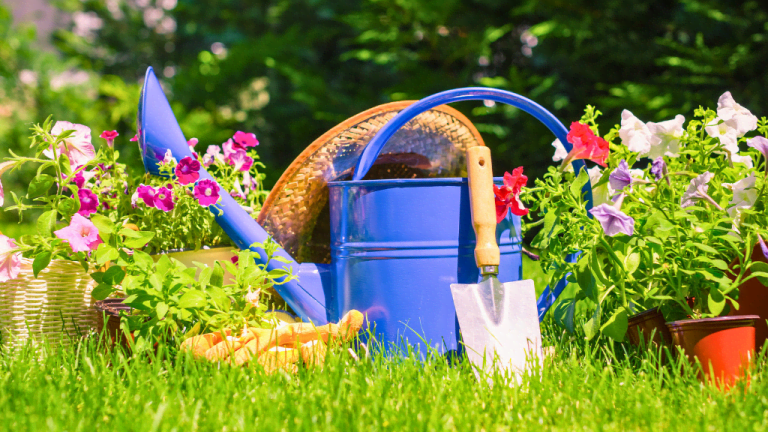The Very Best Gardening Plants for Low-Maintenance and High Award
The Very Best Gardening Plants for Low-Maintenance and High Award
Blog Article
Opening the Conveniences of Gardening: A Thorough Take A Look At the Different Types and Their Effect on Health
Checking out the complex advantages of gardening exposes a spectrum of methods that significantly boost specific health. As we analyze these varied horticulture techniques, it comes to be noticeable that their impact can resonate on individual, social, and ecological levels, prompting a closer look at how these links develop a cohesive story of alternative health and wellness.
Types of Gardening

Blossom gardening, an additional preferred classification, emphasizes the visual charm of grown flowers. This type can boost landscapes and advertise biodiversity by attracting useful pollinators. Natural herb gardening entails growing fragrant and culinary plants, adding both to cooking and natural treatments.
Container gardening deals adaptability, enabling people with limited room to participate in gardening by utilizing pots and planters. This technique is especially preferred in metropolitan setups. Raised bed horticulture, on the other hand, involves creating raised stories that enhance dirt drainage and access, making it simpler for garden enthusiasts to manage their plants.
Finally, area gardening promotes collaboration among people in common spaces, advertising social communication and collective obligation. Each sort of gardening serves distinctive purposes and caters to various choices, making gardening a flexible task that can be customized to individual requirements and environments.
Mental Health Advantages
Participating in various types of horticulture not just yields concrete rewards such as fresh produce and attractive blossoms yet also supplies significant psychological health and wellness benefits. Research study indicates that gardening can be an effective device for minimizing stress and anxiety, stress and anxiety, and depression. The act of often tending to plants and growing a yard fosters a sense of purpose and accomplishment, which can improve general psychological health.
In addition, horticulture urges mindfulness, as it calls for people to concentrate on the present minute, whether it be growing seeds or supporting development. This mindfulness method can cause lowered rumination and enhanced mood stability. The exposure to natural surroundings throughout horticulture has actually likewise been connected to improved cognitive working and reduced feelings of fatigue.
Social communication plays an helpful resources important function in mental health, and community gardening initiatives offer chances for people to attach with others, fostering a sense of belonging. The shared experience of gardening can cultivate relationships and assistance networks, better bolstering emotional strength.
Physical Wellness Perks
Numerous people may not realize that horticulture likewise offers substantial physical wellness benefits. Taking part in horticulture tasks requires an array of physical activities, consisting of bending, training, digging, and planting, which collectively add to better strength, versatility, and endurance. These activities can improve cardio health by promoting a raised heart rate, consequently decreasing the threat of heart problem.
In addition, gardening can work as a moderate-intensity workout, helping individuals accomplish advised exercise levels. Research studies show that regular participation in horticulture can melt significant calories-- around 200-400 calories per hour, depending on the intensity of the jobs executed. Such calorie expenditure is helpful for weight management and overall metabolic wellness.
Furthermore, direct exposure to sunshine throughout horticulture can promote the synthesis of vitamin D, which plays an essential function in preserving bone wellness and sustaining immune function. The act of gardening typically involves working with dirt, which has actually been connected to prospective psychological and physical health and wellness benefits due to the existence of helpful microorganisms.
Social Connections Through Gardening
The public aspects our website of gardening foster significant social links amongst people. Community yards, particularly, act as vibrant centers where people from diverse histories come together, growing not only plants but additionally partnerships. These shared rooms motivate collaboration, permitting individuals to exchange expertise, abilities, and resources, therefore boosting their gardening experience and fostering a feeling of belonging.
Interaction in horticulture tasks commonly dig this results in the development of relationships and support networks. Individuals frequently join for common objectives, such as planting periods, harvest events, or instructional workshops, which enhance interpersonal connections and produce a sense of area. Such communications can minimize feelings of seclusion and improve mental wellness, as people discover friendship and camaraderie in common endeavors.

Environmental Effect of Horticulture
Horticulture dramatically contributes to ecological sustainability in several methods. Among one of the most noteworthy advantages is the enhancement of biodiversity. Home gardens give vital habitats for various types, including pollinators such as and butterflies, which are crucial for environment health and wellness. By growing diverse plant varieties, gardeners can develop a balanced setting that supports both vegetation and fauna.

Additionally, yards play a vital duty in water conservation. Well-planned landscapes, including native plants and xeriscaping, minimize water use and stop drainage, therefore safeguarding regional rivers from contamination.
Final Thought

The diverse types of horticulture-- consisting of vegetable, blossom, herb, container, and increased bed-- add to mental and physical wellness, foster social connections, and promote ecological sustainability. By involving in horticulture techniques, people can experience better top quality of life while additionally supporting community bonds and environmental health and wellness.
Report this page